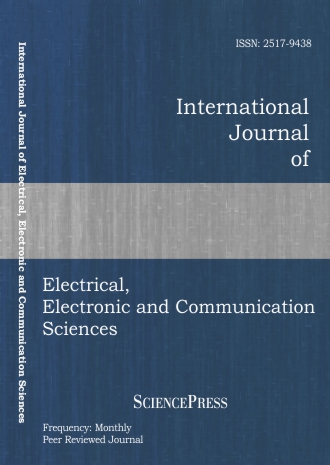
Scholarly
Volume:4, Issue: 7, 2010 Page No: 1030 - 1033
International Journal of Electrical, Electronic and Communication Sciences
ISSN: 2517-9438
1807 Downloads
A Fast Handover Scheme for Proxy Mobile IPv6 using IEEE 802.21 Media Independent Handover
In this paper, to resolve the problem of existing schemes, an alternative fast handover Proxy Mobile IPv6 (PMIPv6) scheme using the IEEE 802.21 Media Independent Handover (MIH) function is proposed for heterogeneous wireless networks. The proposed scheme comes to support fast handover for the mobile node (MN) irrespective of the presence or absence of MIH functionality as well as L3 mobility functionality, whereas the MN in existing schemes has to implement MIH functionality. That is, the proposed scheme does not require the MN to be involved in MIH related signaling required for handover procedure. The base station (BS) with MIH functionality performs handover on behalf of the MN. Therefore, the proposed scheme can reduce burden and power consumption of MNs with limited resource and battery power since MNs are not required to be involved for the handover procedure. In addition, the proposed scheme can reduce considerably traffic overhead over wireless links between MN and BS since signaling messages are reduced.
Authors:
Keywords:
References:
[1] W. Wu, N. Banerjee, K. Basu, and S.K. Das, "SIP based vertical handoff